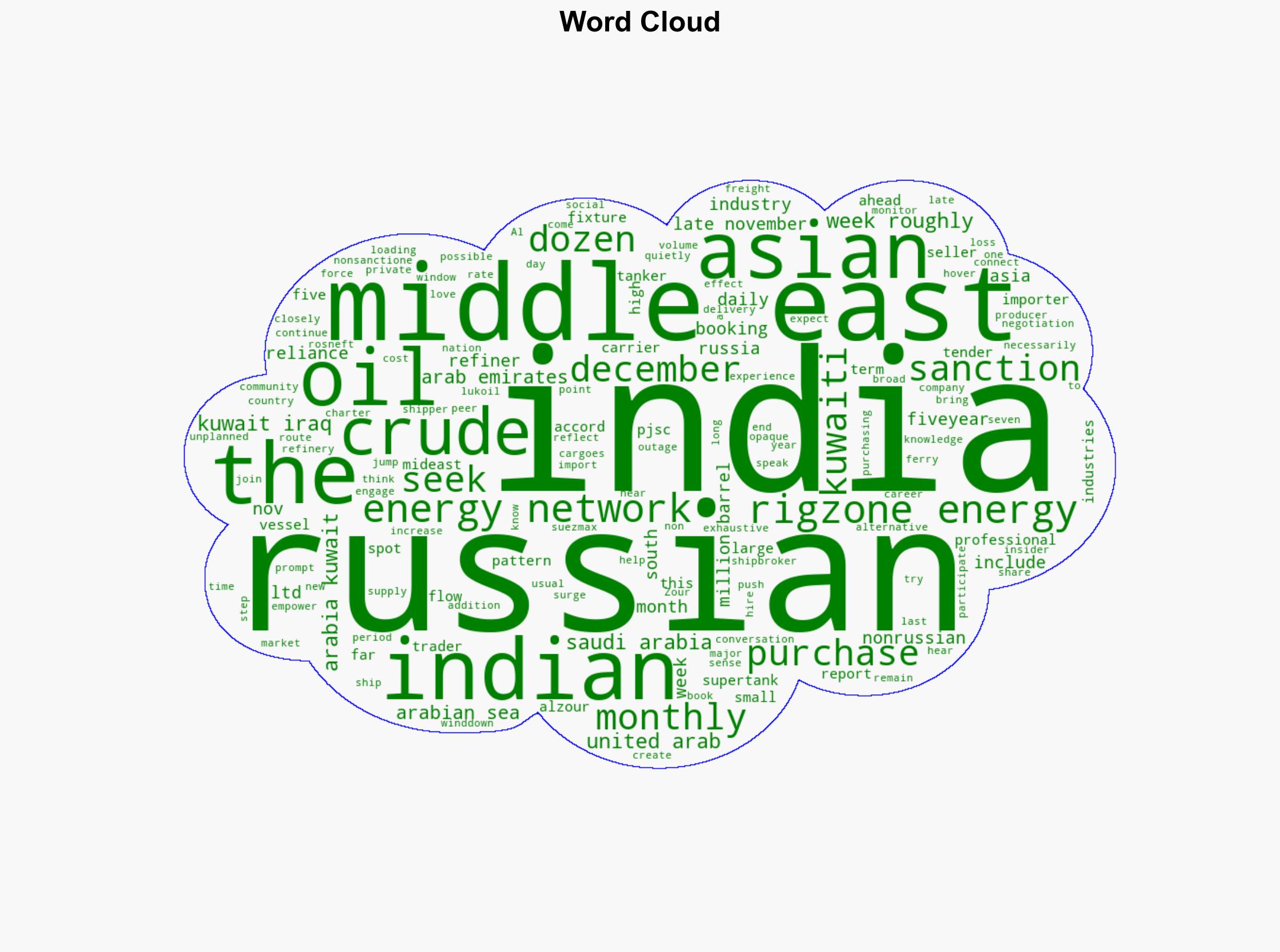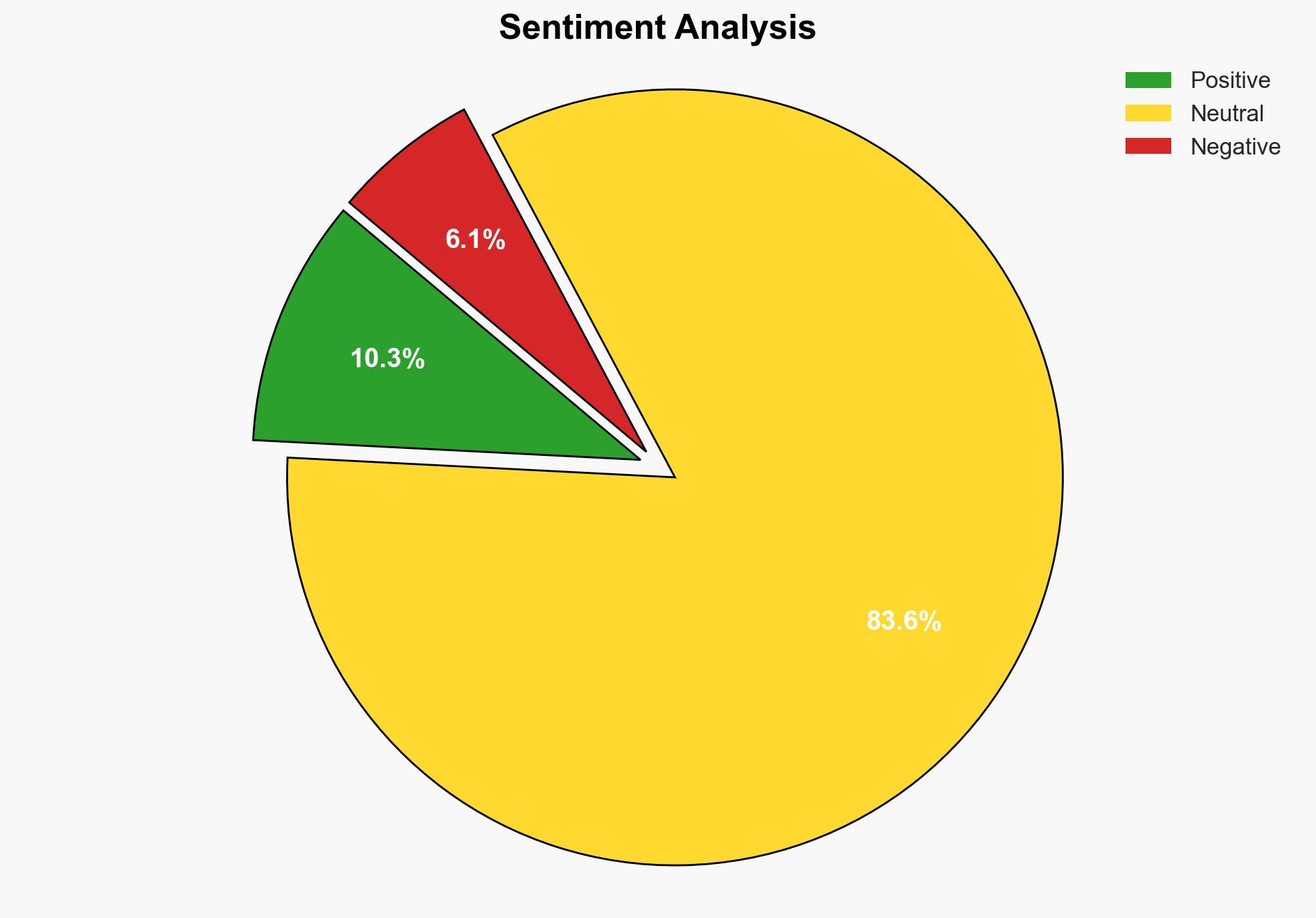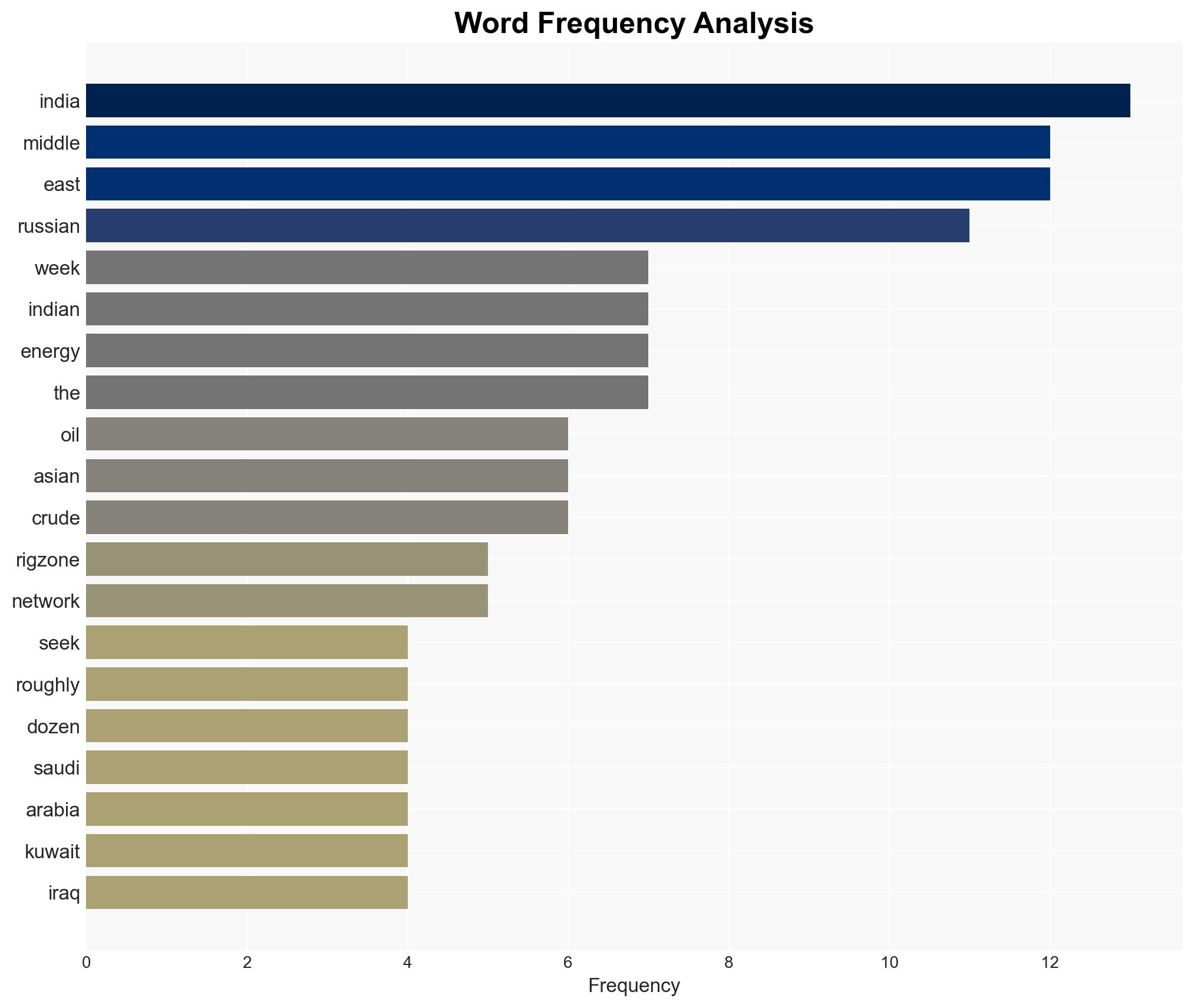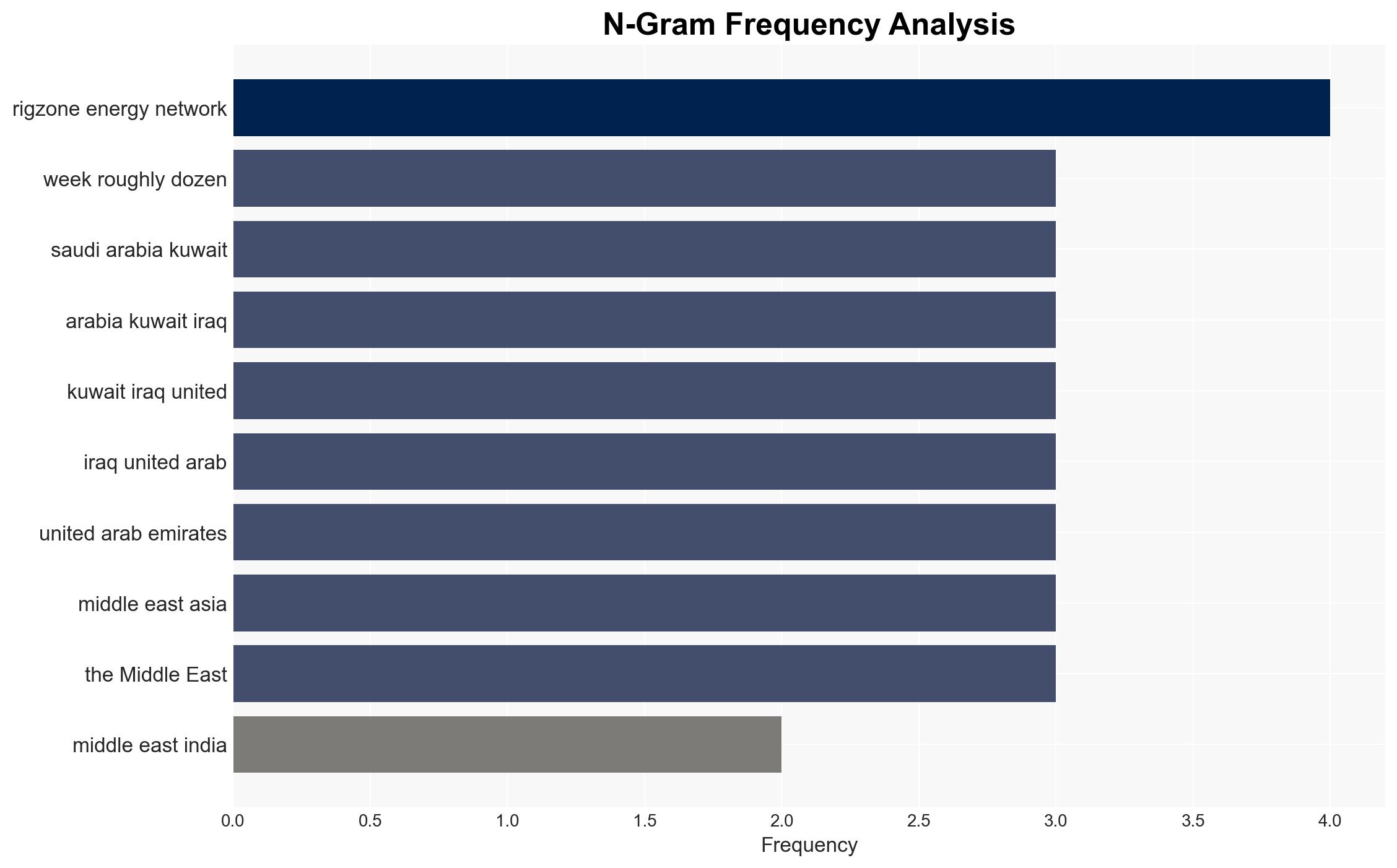India Seeks Mideast Oil Shippers amid Russia Sanctions – Rigzone
Published on: 2025-11-20
AI-powered OSINT brief from verified open sources. Automated NLP signal extraction with human verification. See our Methodology and Why WorldWideWatchers.
Intelligence Report: India Seeks Mideast Oil Shippers amid Russia Sanctions
1. BLUF (Bottom Line Up Front)
India is actively seeking alternative oil suppliers from the Middle East due to impending sanctions on Russian oil producers. This strategic shift is likely to mitigate supply disruptions and stabilize India’s energy imports. Confidence Level: Moderate. Recommended action includes strengthening diplomatic and trade relations with Middle Eastern countries to ensure a steady supply of oil.
2. Competing Hypotheses
Hypothesis 1: India is diversifying its oil import sources primarily due to anticipated disruptions from Russian sanctions. This hypothesis is supported by the increase in tanker bookings from Middle Eastern countries and aligns with India’s need to secure energy supplies.
Hypothesis 2: India’s shift towards Middle Eastern oil is a strategic move to leverage better pricing and terms, independent of Russian sanctions. This could be driven by market dynamics and opportunistic procurement strategies.
Assessment: Hypothesis 1 is more likely given the timing of the increased bookings coinciding with the sanctions and the historical reliance on Russian oil. However, elements of Hypothesis 2 may also be at play, suggesting a dual strategy.
3. Key Assumptions and Red Flags
Assumptions: It is assumed that Russian sanctions will significantly impact India’s oil imports and that Middle Eastern suppliers can meet the increased demand.
Red Flags: Potential over-reliance on Middle Eastern oil could expose India to geopolitical risks in that region. Additionally, opaque market practices and private negotiations may obscure true supply dynamics.
4. Implications and Strategic Risks
India’s shift in oil procurement could lead to increased geopolitical influence in the Middle East, but also heighten exposure to regional instability. Economically, this move might stabilize short-term supply but could increase costs if freight rates remain high. Politically, India’s actions could strain relations with Russia, impacting broader strategic partnerships.
5. Recommendations and Outlook
- Strengthen diplomatic ties with Middle Eastern countries to secure long-term oil contracts.
- Develop contingency plans for potential supply disruptions in the Middle East.
- Monitor freight rate trends and explore alternative shipping routes to optimize costs.
- Best Case: India successfully diversifies its oil imports, stabilizing supply and costs.
- Worst Case: Geopolitical tensions in the Middle East disrupt supply, leading to energy shortages.
- Most Likely: India manages to secure sufficient oil supplies but at higher costs due to increased freight rates.
6. Key Individuals and Entities
Reliance Industries Ltd. (Indian refiner), Rosneft PJSC, Lukoil PJSC (Russian producers).
7. Thematic Tags
Regional Focus, Regional Focus: Middle East, South Asia
Structured Analytic Techniques Applied
- Causal Layered Analysis (CLA): Analyze events across surface happenings, systems, worldviews, and myths.
- Cross-Impact Simulation: Model ripple effects across neighboring states, conflicts, or economic dependencies.
- Scenario Generation: Explore divergent futures under varying assumptions to identify plausible paths.
- Network Influence Mapping: Map influence relationships to assess actor impact.
Explore more:
Regional Focus Briefs ·
Daily Summary ·
Support us





